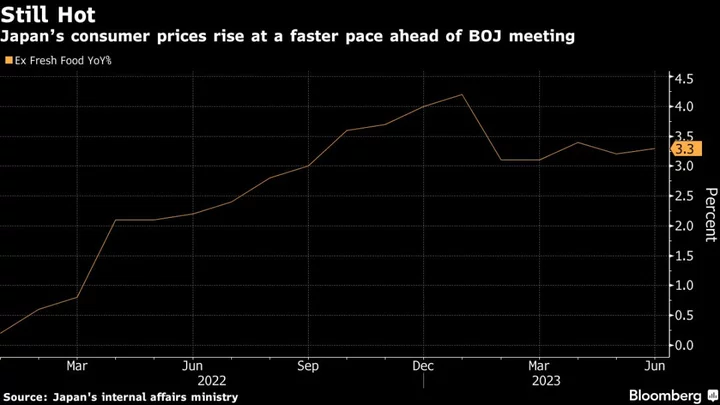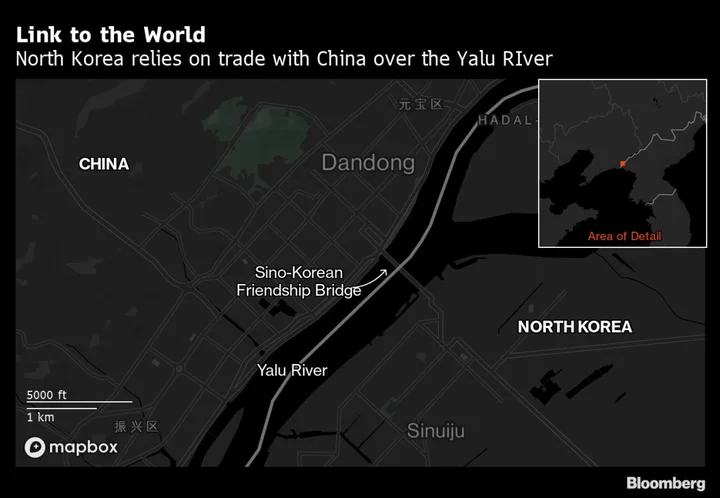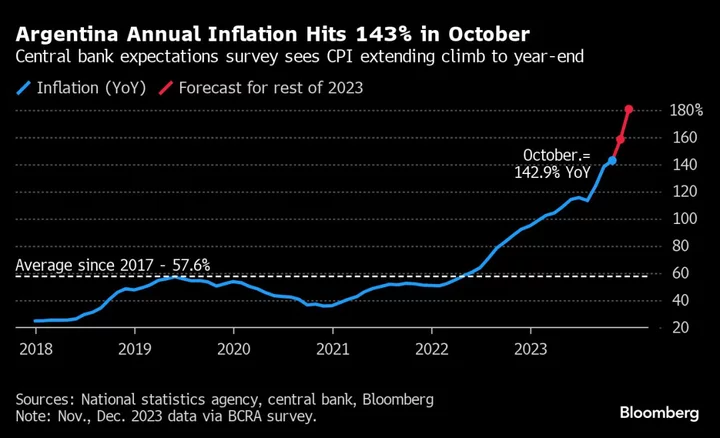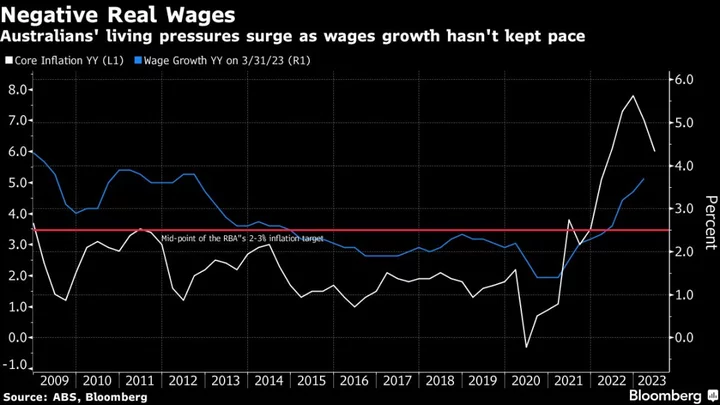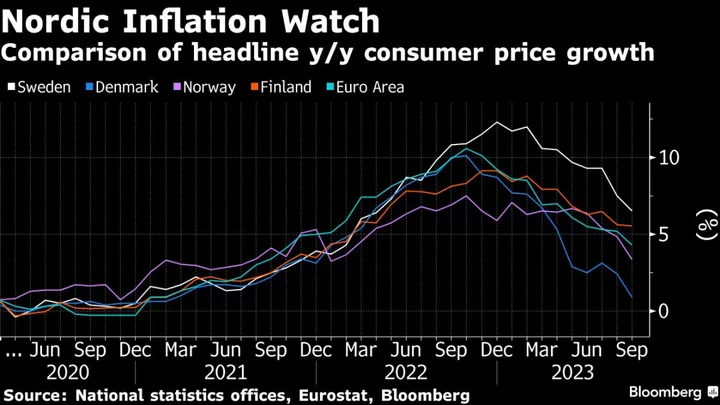Japan’s consumer prices advanced at a faster clip in June in another indication of lingering stickiness in inflation ahead of a central bank policy meeting next week.
Prices excluding those for fresh food gained 3.3% from a year ago, accelerating from a 3.2% rise in May as energy prices were less of a drag on inflation, the internal affairs ministry reported Friday. A deeper measure of the inflation trend that also excludes energy decelerated to 4.2% after reaching 4.3% in May, the highest in more than 40 years. Both figures matched consensus.
The data may complicate Bank of Japan Governor Kazuo Ueda’s position as he continues to back the case for persistent monetary stimulus. The central bank is expected to hold its main policy settings steady when board members meet July 27-28, although a minority of analysts see the BOJ tweaking its yield curve control program.
The bank is seen raising its consumer inflation forecast for the current fiscal year to 2.3% at next week’s meeting, from the current 1.8%, according to a Bloomberg News survey of economists. Ueda has justified retaining an ultra-easy monetary stance on the premise that the recent pace of price gains isn’t sustainable.
The government raised its overall inflation forecast for this fiscal year to 2.6% on Thursday.
The nationwide CPI gauge came after the reading for the Tokyo area showed a re-acceleration of price momentum due in part to utility rate hikes after the government gave power operators approval to raise rates from June.
What Bloomberg Economics Says...
“The data will probably add to the case for the Bank of Japan to stay on hold when it meets July 27-28. The BOJ will very likely judge that stimulus is still needed, given that demand is still insufficient to push up prices.”
— Taro Kimura, economist
For the full report, click here.
At the same time, a series of government price relief measures has been one of the key factors keeping a lid on the inflation trend. Whether to extend the electricity and gas subsidies, set to expire in September, has been a contentious issue among government officials recently.
There are signs upward pressure on prices may be easing in some parts of the economy. The pace of gains in the nation’s producer prices decelerated in May to 5.1% from a year earlier, the slowest in nearly two years.
(Updates with further details.)

